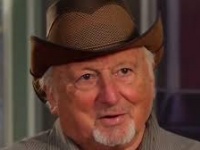-
Team TechTree
06:59 27th Dec, 2019
RIP Chuck Peddle! The Man Who Gave Us Home PCs | TechTree.com
RIP Chuck Peddle! The Man Who Gave Us Home PCs
Today if the laptops are doing all computing and the tablets and smartphones have taken over personal entertainment, it was because of the man who pioneered the microprocessors

Not many of us would have heard of Chuck Peddle or his band of merry engineers who designed the low-cost chip that was initially responsible for getting computers into homes and went on to create an entirely new breed of consumer devices, right from the laptops to hand-held devices and everything else in-between.
Most of the early part of his efforts to create a cheaper silicon chip was conducted within the confines of the Motorola Corp. office at Phoenix till 1974 when the company ordered him to shut down the project. Peddle convinced rival chipmakers MOS Technology in Pennsylvania to take over the project and his team, which then launched the 6502 priced at $25, a full $275 less than the one that Motorola had launched the same year.
It is ironical that even in death Peddle wasn’t noticed by the world that he helped change. Succumbing to pancreatic cancer on December 15 at his home in Santa Cruz, California, the 82-year-old Peddle had to wait a full ten days before the world got to hear of his final log-off. And when the media did finally get wind of it, there was hardly the sort of coverage that a Steve Jobs or some others received.
Mind you, it was the ubiquitous 6502 microchip that powered the early wave of personal computers including the Apple II and the Commodore PET. Peddle was quite clear in his thought that computing had to become personal just as entertainment is becoming in the modern era. He had said that the market needed a cheaper microprocessor in a 2014 interview with Computer History Museum.
Peddle was born in Bangore, Maine to a salesman father and a commercial illustrator mother and had dreamt of a career in radio announcements early in life. After a few attempts at auditioning for the role, he gave up after realizing that his calling lay elsewhere, enrolling for engineering at the University of Maine with the aim of building computers.
He helped design early space vehicles, cash registers and time-share computers (massive mainframes) while on his first job with General Electric. It was only after joining Motorola and working on their 6800-chip used in games that the idea of an ultra-cheap processor came to his mind. Having started in right earnest with a team of seven others, Chuck Peddle acquired the rights to the team’s work when his company shut down the project.
Of course, things weren’t easy for the gang of eight as rivals weren’t convinced of their idea and the ones that were had concerns of legal challenges from Motorola that originally owned it. However, one of the two founders of MOS Technology agreed to give it a shot as he had worked with Peddle during his days with General Electric. True to form, Motorola did sue them and MOS had to fork out $200,000 in fines after a protracted legal battle.
Who said the United States and innovation go hand-in-hand? Hadn’t it been for the obstinacy shown by Peddle, the low-cost chip would have been delayed inordinately.
Though he had brought about a paradigm shift in computing, Chuck Peddle wasn’t done yet. His team built a personal computer around a new chip called KIM-1 and in parallel sold chips to two kids on the block – Steve Jobs and Steve Wozniak. In 1976, MOS was acquired by Commodore Business Machines and Peddle took over as Chief Engineer and came up with the $495 Commodore PET. This after declining to acquire Apple from the Steve-twins a few months before.
Having fueled the personal computer market, Chuck Peddle turned his attention to removable hard drives through the NNA Corporation which created a computer where users could carry their data around – possibly a precursor to the latter-day USBs and modern-day external drives.
Today, the PC age may be on the wane, but what Chuck Peddle did to make computing affordable and a personal device would remain etched forever in the annals of computing history. And people would recall that personal computing wasn’t seeded in the Silicon Valley but in Valley Forge!
TAGS: Chuck Peddle, Microprocessor, Microchip, Motorola, MOS Technology
- DRIFE Begins Operations in Namma Bengaluru
- Sevenaire launches ‘NEPTUNE’ – 24W Portable Speaker with RGB LED Lights
- Inbase launches ‘Urban Q1 Pro’ TWS Earbuds with Smart Touch control in India
- Airtel announces Rs 6000 cashback on purchase of smartphones from leading brands
- 78% of Indians are saving to spend during the festive season and 72% will splurge on gadgets & electronics
- 5 Tips For Buying A TV This Festive Season
- Facebook launches its largest creator education program in India
- 5 educational tech toys for young and aspiring engineers
- Mid-range smartphones emerge as customer favourites this festive season, reveals Amazon survey
- COLORFUL Launches Onebot M24A1 AIO PC for Professionals







TECHTREE